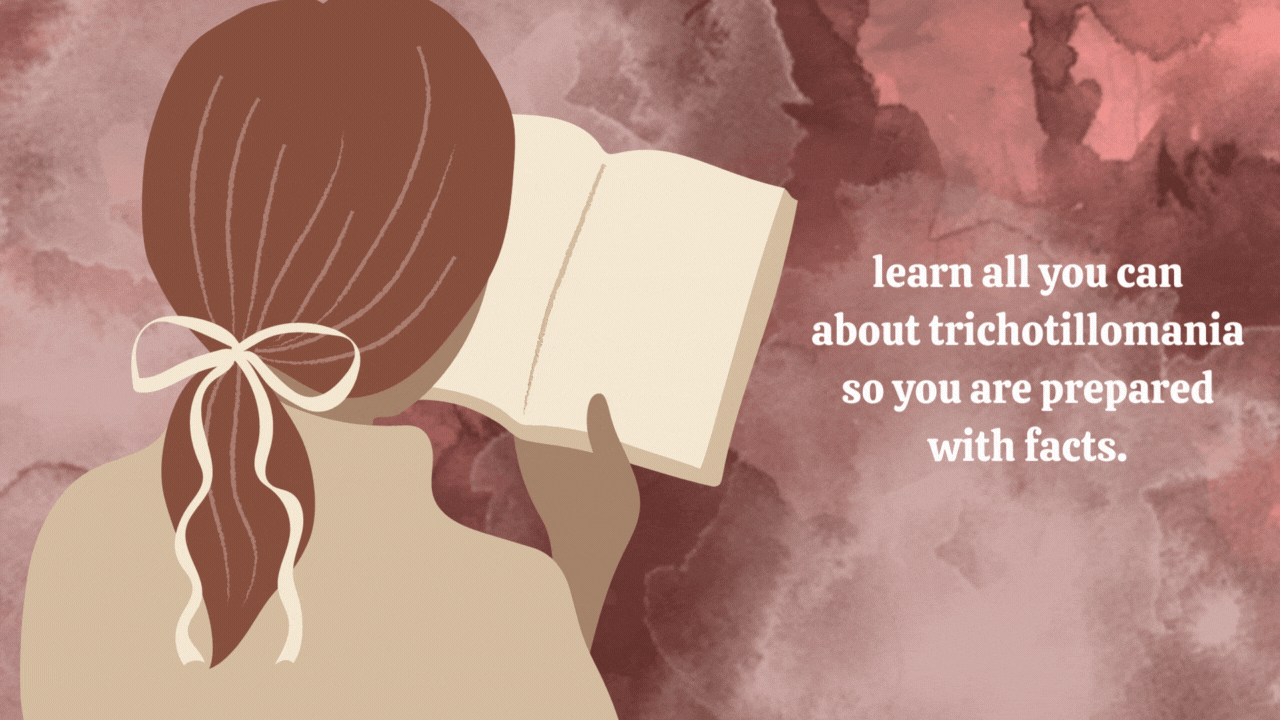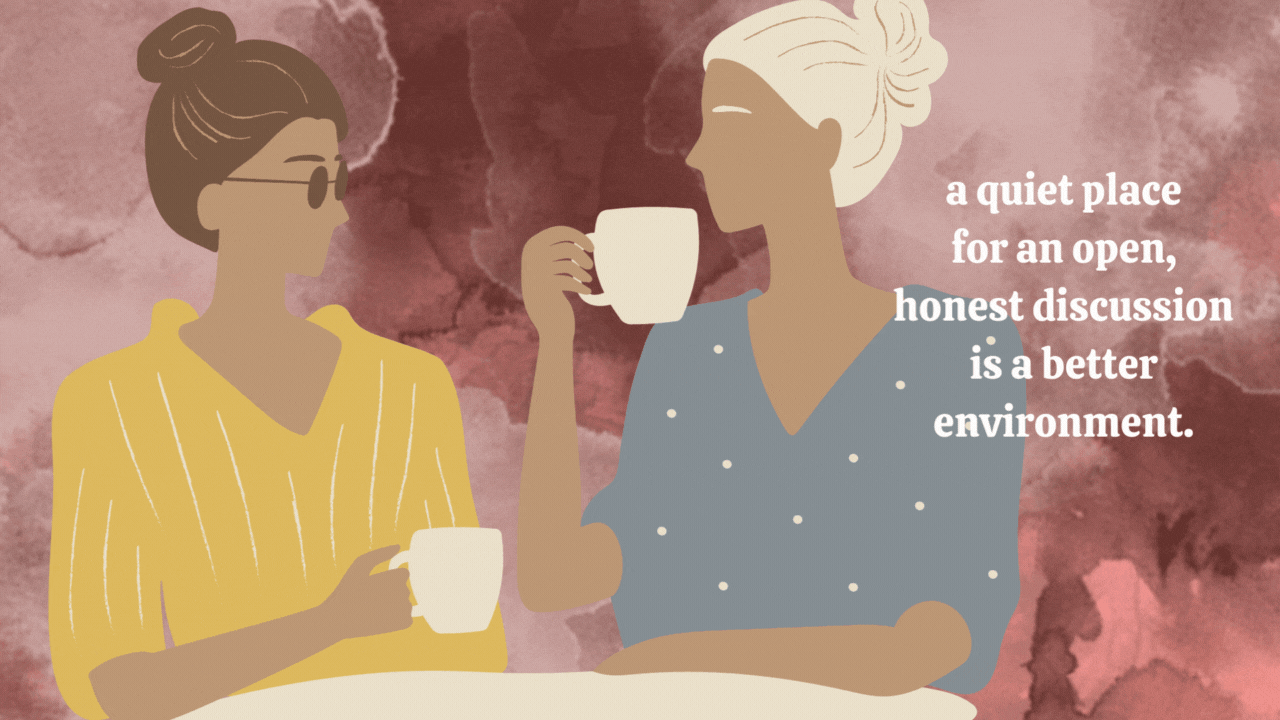Like all of us here at HFHP who have lived experience with
trichotillomania (TTM), you’ve probably heard some comments that just didn’t
sit right. People may mean well, but sometimes their words can be more hurtful
than helpful. When it comes to supporting someone with TTM, empathy and
understanding go a long way.
Today, let’s talk about what not to say to someone
living with this condition—and why these comments can do more harm than good.
We invite you to share this article with anyone in your life who may
not be discussing your medical condition in a helpful way, as we feel strongly
that the people closest to us often do the most damage when it comes to why we
have hair-pulling urges in the first place.
If you’ve opened up to someone about your trichotillomania, that took
a lot of courage. Unfortunately, some people may respond with comments or
advice that feel dismissive or judgmental.
It’s important to remember that TTM
is a body-focused repetitive behavior (BFRB) often linked to stress, anxiety,
and compulsive urges that are difficult to control. So, it’s not as simple as
“just stopping.”
Many people with TTM have already tried multiple strategies,
and well-meaning but uninformed comments can often make them feel worse.

For children, trichotillomania can often be triggered by specific
parenting behaviors. High levels of parental criticism, overcontrol, and harsh
discipline have been linked to the onset and worsening of TTM in children as
they grow older.
These hurtful parenting styles can increase feelings of shame,
anxiety, and a lack of autonomy in the child, which can escalate the compulsion
to pull hair as a coping mechanism for dealing with emotional stress. Shame, in particular, plays a critical role in the
development and persistence of BFRBs.
Here are some common parenting behaviors that may contribute to TTM
or make it worse as the child grows older:
- Overcontrol or
micromanaging: Strict or controlling parents can increase stress in children,
which can lead to hair-pulling as a coping mechanism.
- Harsh
discipline or criticism: Children who experience frequent punishment or
criticism, particularly related to appearance, may experience heightened
anxiety, which worsens TTM.
- Emotional
unavailability: A lack of emotional support can cause children to self-soothe
through hair-pulling.
- Overemphasis
on appearance: Parents who focus on physical appearance can exacerbate feelings
of inadequacy, further fueling the behavior.
These behaviors may trigger a cycle of shame and emotional distress
that is difficult to break without the right kind of support.

Don’t Ask, “Why Don’t You Just Stop?” This is a damaging question because TTM is not a habit that someone can simply turn off. People with TTM often ask themselves this question daily, which only adds to the frustration and feelings of inadequacy. Instead, offering empathy and understanding is far more helpful.
Better Approach: Offer support by saying, “I know this must be really hard, and I’m here to support you in any way I can.”
Don’t Suggest, “Stop Covering Your Bald Spots So You Can See the Damage.” For many, covering bald spots is about feeling confident. Suggesting they stop covering their spots may make them feel even more exposed and ashamed. Respect their choices regarding their appearance.
Better Approach: Ask if they’re comfortable talking about how they manage their appearance and let them share what feels right for them.
Don’t Say, “You Need to Learn to Relax, and Maybe the Pulling Will Stop.” While relaxation techniques can help with stress management, they may not stop the urges completely. TTM is more complex than simply relaxing; it’s tied to both emotional and biological factors, including inflammation and shame.
Better Approach: Be a supportive listener rather than offering unsolicited advice. Ask, “Is there anything I can do to help?”
Don’t Signal or Comment When They’re Pulling (Unless They Ask You To). Feeling monitored can cause additional stress and anxiety, exacerbating the condition. Unless someone with TTM specifically asks you to help them notice their behavior, it’s best to refrain from pointing it out.
Better Approach: Wait until they bring it up and ask how they would like you to support them.
Don’t Compare Their Challenges with Hair Pulling to “Bigger Problems.” Minimizing someone’s experience can be incredibly invalidating. TTM can cause significant emotional distress, and it takes courage to talk about it.
Better Approach: Acknowledge their challenges and say, “I know this is tough for you.”
Don’t Give Tips or Advice (Unless Asked). Chances are, someone with TTM has already tried many ways to stop pulling. Offering advice can feel frustrating or dismissive.
Better Approach: Simply ask, “Is there anything I can do to support you?” Sometimes, all they need is someone to listen.
Don’t Ask, “What’s Wrong with You?” or “Why Would You Do This?”.
Trichotillomania is not a choice—it’s a medical condition. Asking these questions only reinforces shame and feelings of inadequacy.
Better Approach: Express empathy by saying, “I know this is difficult for you. I’m here to listen whenever you’re ready to talk.”

Stress and anxiety are significant triggers for hair-pulling.
Research shows that these emotions can lead to compulsive behaviors, such as
hair-pulling, which may serve as a temporary coping mechanism.
Creating a non-judgmental, supportive environment is critical for
helping someone with TTM manage their condition.
If you’re unsure how to approach conversations about
trichotillomania, HFHP offers a downloadable guide with tips to help navigate
these sensitive discussions - get your copy in our UnTrick YourselfTM educational program.
We also provide resources for finding TTM-informed
therapists and encourage supportive and healthy communication.
At Healing from Hair Pulling, we’re here to support you through every
step of your healing journey. Our programs are designed to help you build
confidence, manage stress, and reduce hair-pulling, surrounded by a community
that understands and cares.
Join UnTrick Yourself™, our peer-led, evidence-based program designed
to help women with trichotillomania. Together, we’ll explore strategies to
manage TTM and open up conversations with your loved ones in a way that feels
supportive. You’re not alone in this journey.
Join us at healingfromhairpulling.com and take the
first step on your journey toward healing. Together, let’s find what works best
for you!
Houazene, S., Leclerc, J. B., O’Connor, K., & Aardema, F. (2021). “Shame on you”: The impact of shame in body-focused repetitive behaviors and binge eating. Behaviour Research and Therapy, 138, 103804. https://doi.org/10.1016/j.brat.2021.103804
Keuthen, N. J., O’Sullivan, R. L., Ricciardi, J. N., Shera, D., Savage, C. R., Borgmann, A. S., ... & Baer, L. (1995). The Massachusetts General Hospital (MGH) hairpulling scale: 1. development and factor analyses. Psychotherapy and Psychosomatics, 64(3-4), 141-145. https://doi.org/10.1159/000289003
Wajiha Yasir,Dr. Syeda Farhana Kazmi. (2021). THE ROLE OF PARENTING BEHAVIOR IN BODY FOCUSED REPETITIVE BEHAVIOR DISORDERS AMONG ADOLESCENTS. Harf-O-Sukhan, 5(4), 116-128. Retrieved from https://harf-o-sukhan.com/index.php/Harf-o-sukhan/article/view/178








